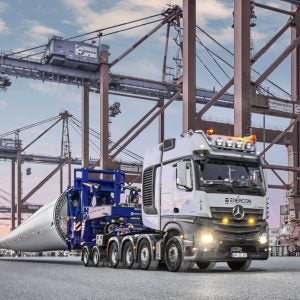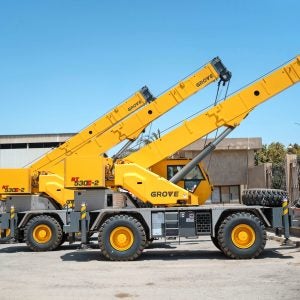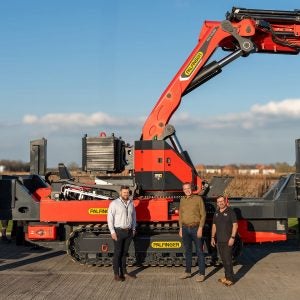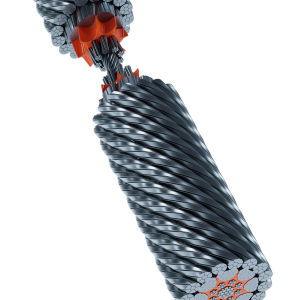
Manufactured by Scheuerle according to Mammoet’s specifications, the first TPA units were presented at a ceremony held at Scheuerle’s headquarters in Pfedelbach, Germany.
The TPA transport solution is based on the self-propelled K25 modular platform vehicle, which hydraulically drives four of the six axle lines by means of a Power Pack Unit (PPU).
With a performance of 735kW (1,000hp) as well as a traction force of 400kN, one vehicle in the version featuring a drive unit and a six-axle platform trailer replaces two fully loaded heavy-duty truck tractors. Thanks to the modular design the TPA can be coupled together and a network of multiple vehicles means even more power.
The TPA has an assisted road speed up to 28km/h, which is up to 20 times faster than an SPMT solution. Above 28km/h, TPA will switch to freewheel mode, leaving the prime movers to haul the load at up to highway speeds. TPA is designed for international transportation, with permissions in place it is possible to use TPA on public roads in Germany and across Europe.
TPA’s hydraulic hub motors can be re-engaged to slow the load down hydrostatically, reducing wear and tear on its brakes, and provide the precision and control required to navigate narrow or winding sections of the route.
“By reducing the overall weight of the transport—fewer trailers and less or no ballast—TPA improves fuel efficiency. And, by reducing the overall length and number of powered units involved in a transport, TPA reduces complexity, boosts project safety and requires only one driver,” said Mammoet.
It is designed to operate between -40°C and +50°C. With four powered axle lines per six-axle trailer, TPA provides supreme traction in difficult conditions.
Once a load has been delivered, TPA units can be towed back to base in freewheel mode with their engines off.
Each TPA trailer has a 1,000 horsepower diesel engine powering a new hydraulic drive system. “The result is a trailer with twice the pulling force of a conventional prime mover unit but with no ballast requirements. The overall weight and length of transports will be greatly reduced, thus lowering emissions and eliminating the need for multi-truck configurations. In so doing, it will mitigate risks caused by the complexity of steering and breaking,” said Mammoet.
Mammoet and Scheuerle have a 40-year history of cooperation, collaborating on engineering solutions in the heavy transport sector, and together developed the self-propelled mobile transporter (SPMT) in the early 1980s.
“Today SMPTs are an industry standard. The Trailer Power Assist is expected to make a similar impact on the industry,” said Mammoet.






